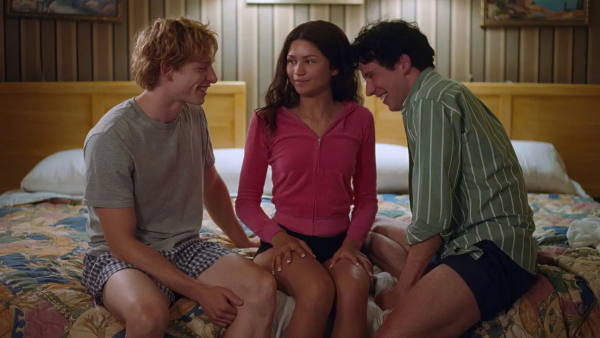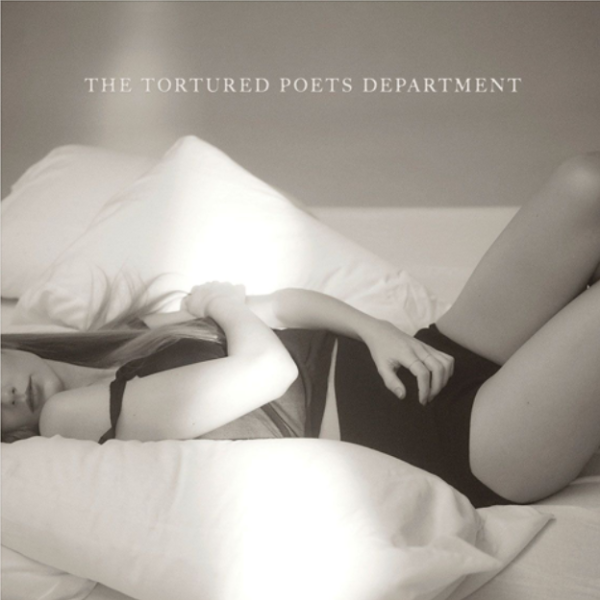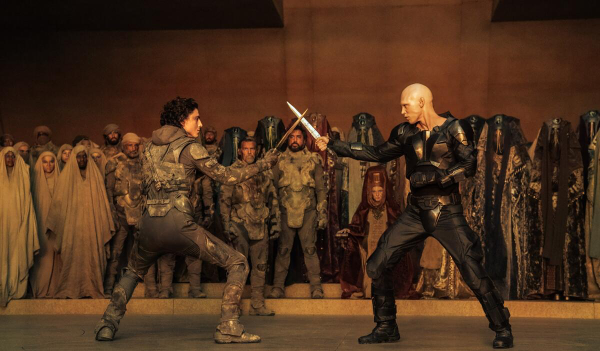“Crazy Stupid Love…” or so you think
The Importance of Destigmatizing Romance Media
More often than most like to admit, heteronormative romantic books and movies are written off as bad, too emotional or “girly,” which has an extremely negative effect on the general population of men around the country. Men are not less masculine for enjoying such media, quite the opposite actually. Men miss out on many great movies, books and artists when they subscribe to the stigma that they are any less of a man by liking “The Notebook,” “The Princess Bride,” “Romeo and Juliet,” “Crazy, Stupid, Love” or Lady Gaga. They also may miss out on some key experiences that lead to emotional maturity and being a good partner.
When men decide to ignore any form of media that they may deem girly or emotional, they often become entirely deprived of wonderful movies and books. Although, in the opinion of some, award ceremonies such as the Oscars may be a poor representation of what is considered a good movie, the award for “best picture” is not given out lightly. So when romance movies have accumulated more than 40 of the 93 winners of the award, it is fairly unreasonable to sort all romance movies into the assumption that they are not good cinema, especially considering how they provide a good lens into everyday life and can even become a form of escapism for viewers.
Not only are there hundreds of great romance movies that men may be missing, but the average man may be missing out on the development of his emotions. Many people can agree that a person who is more in sync with how they are feeling can be an effective communicator and a generally less abrasive person. By taking in more traditionally emotional media, men may, in turn, become more in tune with their own sensitive feelings. When a man goes without any kind of romantic media, there is a likelihood of an entire lack of sensitivity that he has toward others and even himself because when a man spends more time around the ideas of romance and being vulnerable to his feelings, he may be more susceptible to doing that in his day-to-day life.
Dr. Ronald Rogge, a professor of psychology at the University of Rochester, conducted a study on the effects of romantic movie viewing on men in romantic relationships. After his study, he concluded that increased consumption of that media is said to heighten the awareness and acknowledgment of the personal responsibility of men in relationships, rendering the men’s relationships happier than prior to the viewing. The romantic media a man decides to consume fosters a healthier relationship with others, even his partner. Even without analyzing said media, a man may develop a better idea of how he should conduct himself in his relationship from the dynamics explored in the movies.
When men dismiss romantic media as something less-than, too emotional or girly, they are barring themselves from some delightful pieces of literature, cinema, and music. Not only that, but they are also depriving themselves of the opportunity to cultivate truly important emotional growth. This not only benefits men themselves but also the people around them. Romantic media should be considered a requisite to men’s sensitivity, not a destructor of their masculinity.
Your donation will support the student journalists of Saint Louis University. Your contribution will help us cover our annual website hosting costs.


![The Teskey Brothers [Crew] gather together for a curtain call in front of a raucous St. Louis crowd after a two-song encore. (Photo courtesy of Vertrell Yates / @trellseyephotography)](https://unewsonline.com/wp-content/uploads/2024/05/Screenshot-2024-05-21-232057-600x370.png)









Ashlyn • Mar 3, 2023 at 1:47 pm
This is an amazing article, so well written and insightful.